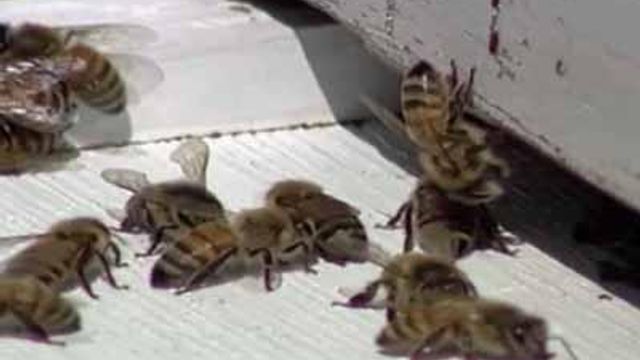Allergic to insect stings? Check out new guidelines
Dozens of people die each year from bee, wasps and other insect stings. Now, a national task force is updating guidelines for diagnosing and treating sting allergies.
Posted — UpdatedFor most people, insect stings are annoying and a little painful. However, for millions of others, stings can cause serious allergic reactions.
Dozens of people die each year from bee, wasp and other insect stings. Now, a national task force is updating guidelines for diagnosing and treating sting allergies.
The American College of Allergy, Asthma and Immunology wants everyone to be aware of the symptoms of a severe allergic reaction. Mouth and throat itchiness, trouble breathing and chest tightness are just a few of the signs.
The new guidelines also warn that insects usually considered a nuisance, such as bumblebees, are causing more severe reactions. Those who are allergic should get shots to keep reactions in check, doctors say.
“Allergy shots are designed to give you small quantities of insect venom that you're allergic to over time, and the body will develop a tolerance,” said Dr. Clifford Bassett, with New York University’s Langone Medical Center.
Joseph Arlack didn't know he was allergic to yellow jackets until one stung him eight years ago, he said.
“I was totally disoriented. I was itchy all over. I later became very weak,” he said.
Arlack had a severe allergic reaction and was rushed to the hospital.
“I was very close to death. They told me my organs had started to shut down,” he said.
Arlack went for shots for several years to try to reduce the danger if he's stung again.
“They tell me there's a 97 percent certainty that if I got bit again I'd be fine, but there's always that 3 percent chance I would not be,” he said.
Arlack says he’s keeping a lookout for yellow jackets and carrying emergency medication just in case.
Allergy experts also suggest people know where stinging insects live to avoid getting stung. Yellow jackets usually build nests in the ground, while hornets are very aggressive and build nests in trees.





